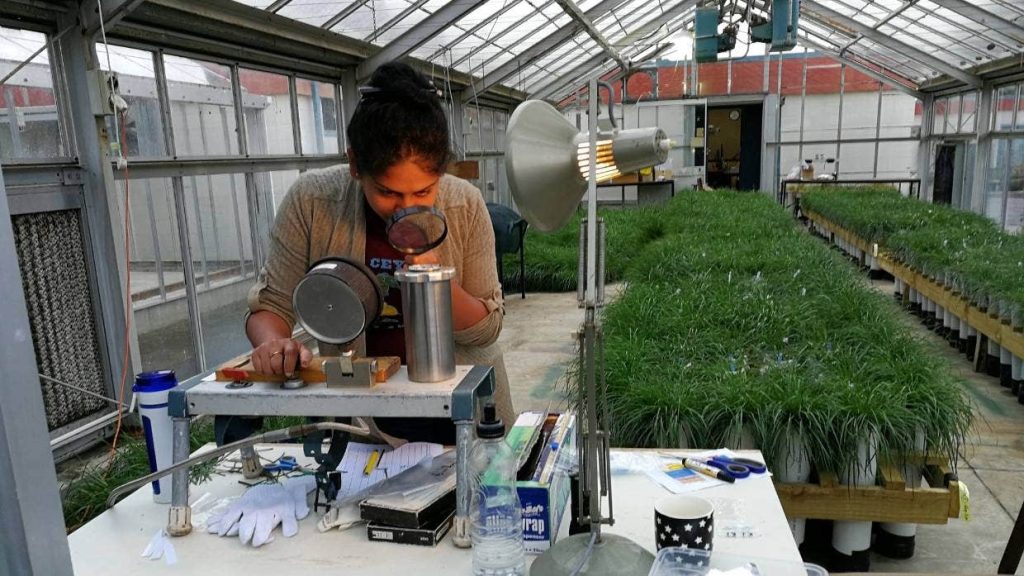The food and fibre sector will lose out on export opportunities if it did not begin using gene editing technologies, Te Puna Whakaaronui says.
Global regulations were changing around gene editing, often allowing it to be used in the food and fibre sector.
New Zealand’s food and fibre sector will lose out on growth and export opportunities if it does not engage with gene editing technology, says the first think tank for the farming industry.
Lain Jager, Te Puna Whakaaronui chair, said the time was coming for New Zealand to renew its policy settings on genetic modification (GM).
The think tank’s first report found in other countries there were billions of dollars invested into alternative proteins, regenerative farm practices, the wellness market, aquaculture and marine-based opportunities, microbiology, precision fermentation and personal nutrition based on a consumer’s genetics. Many of these opportunities needed GM technology to go forward.
New Zealand would lose out on export opportunities if local investment did not follow suit, Jager said.
“The opportunity cost of not engaging with gene technology is increasing. We see enormous investment in modern food spaces, like plant-based food alternatives, cultivated cell-based meat, precision fermentation. Large companies globally are seeking to take strategic positions in that space. If we want to play in those spaces, then genetic technology needs to be part of that,” Jager said.
New Zealand, Australia and Europe regulated GM technology based on the technique used to genetically modify something. Other regulatory approaches, such as plant regulations in Canada, considered the final trait of a modified product the premise for how it would be regulated, not the technique by which the trait was introduced, Jager said.


Zahra Champion, director at BioTech New Zealand, said gene technology sat across the agriculture, food, human health, environmental and industrial sectors.
Gene technology was already accepted in lab research and in the health sector in New Zealand, Champion said.
“It is not accepted in the environmental, industrial and agriculture space. There used to be a ‘GM free’, or ‘no GMO’ mentality. In the GM space we see a range of different technologies. Everyone is now using gene editing. You are not taking a gene from anything else and putting it into a different species. You are simply manipulating the individual. There are no foreign genes. This is key,” Champion says.
Despite advances in technology Champion does not think New Zealand will accept gene technology in food for a very long time, because the public perceived food as “scary” when it was manipulated.
Gene technology would be easier for the public to accept if it was rolled out outside food, Champion said.
“One can make it easier for the public to accept it by first rolling it out it in the industrial or environmental space, in a closed system,” Champion said.
“When the impossible burger came out it had a GM ingredient in it, and the public didn’t care. Maybe public perceptions are not what they used to be 20 years ago. New generations have grown up with technology that changes quickly. They are agile, and they want things to be clean, green, sustainable, and they want choices,” Champion said.
New Zealand could be left behind because of how regulations and definitions around GM was framed. In the UK gene editing was taken out of the GM definition, Champion said.
“Farm businesses will be able to use gene editing and still be GM-free. It will come to be a very unequal playing field.
“We wil say we are GM-free, and the UK will say they are GM-free, but the UK will have the gene editing technology to create cows that produce less methane, grass that produce less methane when eaten, or are drought resistant. They will have a competitive edge that we don’t have. We need to say that gene editing is not a GMO,” Champion said.
“Each usage of the technology should be assessed, we will not simply put things in the environment, there still needs to be a robust reason for why you are doing something,” Champion said.
Glenn Wigley, director of regulatory and policy at the Ministry for the Environment said it had no work planned or under way to fully review the regulations for genetically modified organisms.
“Our understanding is that the most recent calls for a review of the regulations were due to the Government’s response to the Productivity Commission’s Frontier Firms report [last year],” Wigley said.
The call for new approaches were also coming from farmers.
After the Government announced, as part of the emission reduction plan, that it would invest in agriculture technology to future-proof the sector, Federated Farmers president Andrew Hoggard said that nitrate and methane inhibitors, gene editing and animals bred for their lower methane production, were the kind of advances that would enable New Zealand’s farming sector to continue to perform.
“It will also be crucial that our regulatory framework is worked on at the same time as the acceleration of research and commercialisation of these tools, so that when they’re ready, we can get on with using them,’ Hoggard said.






